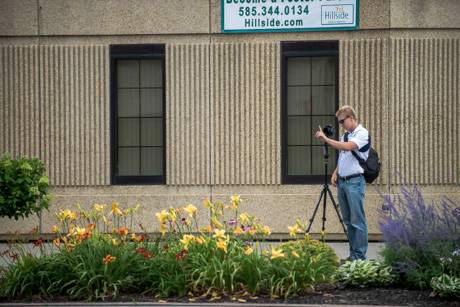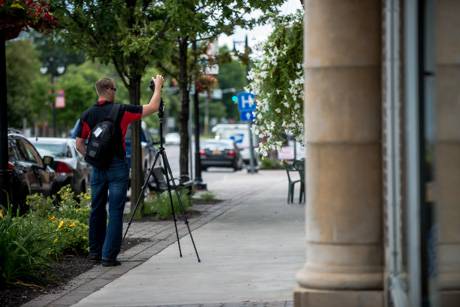Everywhere I go I see people texting or talking on their cell phones. Now the craze of constantly checking each other’s status has gone to the next level. Technology today offers numerous ways to not only stay connected to friends and family, but to keep a constant eye on them, to know wherever they are, whenever.
On Wednesday, Feb. 4, Google launched Latitude, a location-tracking service that uses GPS hardware found in smart phones to pinpoint your real-time position on a map and share that information with friends. The program seems simple to download: enter your cell phone number and wait for the link to arrive to your phone.
Seventeen-year-old Oakfield resident Justin Potter said he would love to try the new Google Latitude application. “Cool, I would love to check this out,” Potter said after he heard what Latitude was all about.
Before users are able to see where their friends are, they must first have an account with Google, have Latitude downloaded, and make sure their phone is compatible. Potter was eager to try it. Unfortunately, his cell phone was not compatible, and the only other way he could use the program was through his computer at home.
“I would rather have it on my cell phone,” Potter said, disappointed.
Even though Potter wasn’t able to download Latitude to his phone, he said this would be an easier way to connect with his friends.“I will definitely check out this program,” he said, adding that his friends would likely enjoy it, too.
At first, Potter thought that anyone would be able to track his location. Latitude’s maps shows the user’s location, marked with a picture of the person that has been uploaded onto their Google account. But users must add friends and then send an invite, similar to the friend request system used with Myspace and Facebook. Your friends must accept before you can track their location.
Batavia resident Alicia Philips, 40, screamed with excitement about using Latitude.
“Heck yes! I would love to use this,” she said. “This would be so beneficial, especially in case of an emergency.” Phillips is the mother of three and said she would love to use it as another means to find out exactly where her children are.
Google gives the user three privacy settings: a user's location can be updated automatically, manually updated, or they can hide their location from friends. And, of course, they can always just turn Latitude off.
Not everyone is so enthusiastic, however. A "privacy" group based in the UK that goes by the name of Privacy International issued a full statement on what they found to be a major security flaw with the program: the potential for a third party to hack into the program. The group's conclusion sounds damning:
Privacy International believes Google has created an unnecessary danger to the privacy and security of users. It is clear the company is aware of the need to create a message alert on Latitude-enabled phones but has chosen to launch the service without universal access to this safeguard. The Director of Privacy International, Simon Davies, said:
"Many people will see Latitude as a cool product, but the reality is that Google has yet again failed to deliver strong privacy and security. The company has a long way to go before it can capture the trust of phone users."
"As it stands right now, Latitude could be a gift to stalkers, prying employers, jealous partners and obsessive friends. The dangers to a user’s privacy and security are as limitless as the imagination of those who would abuse this technology."
As to be expected, Google was swift to respond.
“We recognize the sensitivity of location data, so we've built fine-grained privacy controls right into the application,” Vic Gundtra, Google's VP of engineering wrote in a blog post.
The program can be installed at Google Latitude.
Latitude is currently available in 27 countries, and Google hopes to expand. The program is free but there may be carrier charges. Phones that are enabled to use this program include: T-mobile Android, Blackberry, iPhone, Motorola, Nokia, Nokia S60, Samsung, Sony Ericsson, and Windows Mobile.


